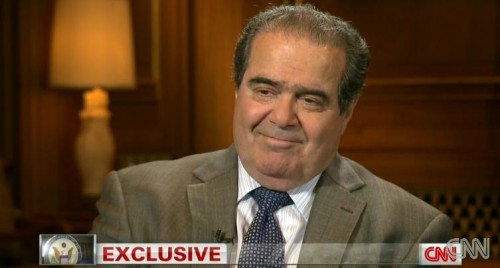
by Lauren Gailey, Staff Writer
Last June, the Court announced its controversial decision to uphold the Obama administration’s Patient Protection and Affordable Care Act – a decision made possible only when Chief Justice John G. Roberts, a conservative appointed by George W. Bush, crossed ideological lines to uphold the constitutionality of the Act’s individual mandate. In doing so, the Chief Justice disappointed conservatives nationwide. It was widely rumored that he disappointed his conservative Court colleagues as well, particularly Justice Antonin Scalia.
Rumors of a feud between Roberts and Scalia abounded throughout the summer, despite the latter’s denial of any infighting during a rare interview on CNN’s “Piers Morgan Tonight” on July 18. Scalia told Morgan that he was offended by the public criticism of Roberts, especially the allegations that the Chief Justice’s vote in the case was politically motivated. Emphasizing that the Court is “not a political institution,” Scalia said, “I don’t think any of my colleagues . . . vote the way they do for political reasons.”
Despite Justice Scalia’s denials, the tales of a feud persisted, culminating in September with the publication of The Oath, Jeffrey Toobin’s book on interplay between the Roberts Court and the Obama administration. Toobin, a CNN Supreme Court analyst and writer for The New Yorker, fanned the flames of the rumors, calling Scalia “furious” and “enraged” at Roberts for switching his crucial vote. Toobin claimed that the dispute was far from one-sided, as Roberts had changed sides precisely because he was unhappy with Scalia and the other conservatives for their insistence on striking down the Affordable Care Act in its entirety.
Lauren Gailey is a second-year day student at Duquesne Law and is currently a Legal Intern for the U.S. Attorney’s Office for the Western District of Pennsylvania. Over the summer, Gailey worked for the U.S. Attorney’s Office, where she filed several briefs for the Child Exploitation Section of the Criminal Division and developed expertise on the constitutionality of the Sex Offender Registration and Notification Act. One of her briefs was submitted to the Department of Justice’s Child Exploitation and Obscenity Section Brief Bank for use by DOJ attorneys nationwide.